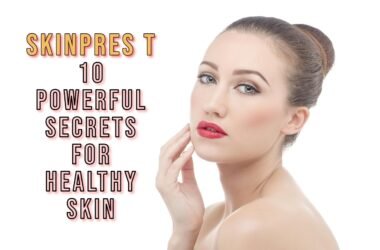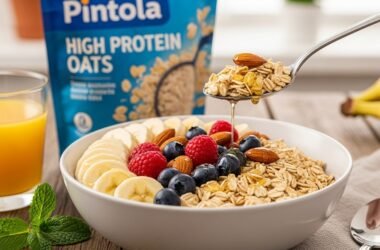Understanding Hair Growth and Loss
Hair growth is a surprisingly intricate biological process impacted by age, hormonal changes, lifestyle, and diet. Each strand grows from its follicle through well-defined growth cycles: anagen (active growth), telogen (rest), and catagen (shedding). If these cycles are interrupted—whether by underlying health problems, genetics, or poor nutrition—this may manifest as excessive shedding or thinning hair, a concern that affects millions globally. Many are surprised to learn that hair follicles are among the body’s most metabolically active structures, meaning they react quickly to any internal or external changes.
Women, in particular, often notice changes in hair thickness and density due to hormone shifts or insufficient nutrient intake. Periods such as menopause, pregnancy, and postpartum are especially prominent times when hair changes become noticeable, often prompting many to explore supplements that support hair growth for women, which are specially formulated to nourish the scalp and strengthen hair from within. Women’s susceptibility to conditions like telogen effluvium—where many follicles enter the resting phase simultaneously—highlights the importance of targeted interventions.
Key Nutrients for Healthy Hair
Several vitamins and minerals are foundational for healthy hair. Biotin, also known as vitamin B7, is a cornerstone for keratin development and follicle strength; insufficient biotin can lead to brittle hair prone to breakage and slow regrowth. Iron is similarly vital, ensuring oxygen-rich blood reaches the follicles, fueling rapid cell division for robust growth. According to the Harvard School of Public Health, iron deficiency ranks among the most common nutrient gaps behind unexplained hair loss in women. This emphasizes why women experiencing hair changes are often advised to review their iron status.
- Biotin: Aids in keratin production, providing the basic structure that gives hair strength and shine.
- Iron: Delivers oxygen to hair roots, necessary for producing new, healthy hair cells and preventing early shedding.
- Zinc: Facilitates cell growth, DNA repair, and sebum production—an oil that keeps scalp skin moisturized to avoid flaking and inflammation.
- Vitamin D: Linked to the formation of new hair follicles and may help with certain forms of alopecia; low vitamin D is commonly seen in people with chronic hair loss.
Other essential nutrients include vitamin E, which supports healthy scalp circulation, and vitamin C, which aids in collagen production and the absorption of plant-based iron. Omega-3 fatty acids and selenium are also gaining attention for their roles in minimizing inflammation and protecting against oxidative scalp stress.
Regular consumption of these key nutrients from a balanced diet or targeted supplementation helps create an optimal internal environment for hair to thrive. If dietary sources are lacking, supplements may bridge gaps and prevent or resolve existing deficiencies that can compromise hair health.
Botanical Ingredients in Hair Supplements
Beyond essential vitamins and minerals, many advanced hair supplements harness botanical extracts that have been studied for their protective and strengthening effects on the scalp and follicles. Saw palmetto, for example, is believed to naturally block the conversion of testosterone into dihydrotestosterone (DHT)—a hormone linked to male and female pattern hair loss. This can be particularly important for women experiencing androgenic alopecia, where excess DHT leads to follicle shrinkage.
- Saw Palmetto: Acts as a natural DHT inhibitor, potentially reducing the hormone’s damaging impact on genetically susceptible hair follicles.
- Ashwagandha: This adaptogen is heralded for its stress-reducing effects. Chronic stress is known to precipitate or worsen hair loss through elevated cortisol and systemic inflammation.
- Pea Sprout Extract: Supplies phytonutrients that have been shown to extend the anagen (active growth) phase, promoting both growth and follicle vitality, which can translate to increased fullness and density.
These botanicals are increasingly popular in hair wellness formulations due to their adaptogenic, antioxidant, and anti-inflammatory properties. They help create a balanced internal state, counteracting both external and internal hair thinning triggers. These extracts offer a layered approach to supporting overall hair wellness and resilience when used alongside nutrients.
Clinical Evidence Supporting Hair Supplements
Several clinical studies offer encouraging data on the impact of hair supplements, especially for women suffering from thinning hair unrelated to medical conditions. In one well-documented study, a supplement featuring saw palmetto and wheat phytoceramides led to 90% of participants reporting fuller, less brittle hair within two to four months of daily use. Significant improvements in hair density, reduction in breakage, and enhancement in volume were frequently reported, suggesting that oral supplements can be valuable tools for gently progressive, non-scarring hair loss types.
While supplements are useful tools, they often work best as part of a broader regimen that involves topical products, gentle scalp massage, regular cleansing, and lifestyle shifts such as reducing stress and improving sleep hygiene. Efficacy varies by individual, depending upon genetic background, underlying health, and consistency of use, underlining the importance of a personalized approach in hair wellness.
Personalized Approaches to Hair Health
Thanks to recent advances in genomics and wellness technology, hair care can be tailored to fit one’s genetic and nutritional profile. Companies offering bespoke analysis may use DNA kits, blood testing, or comprehensive wellness questionnaires to identify specific deficiencies—such as biotin metabolism variants or heightened androgen sensitivity—allowing for personalized strategies to supplement use and lifestyle guidance.
Personalized hair supplements deliver better results and minimize side effects, as they are built around unique biological needs instead of relying on one-size-fits-all formulas. This individualized approach may involve tweaking dosages, targeting micronutrients, or selecting botanicals that best match a person’s hormonal, stress, or inflammatory profile. The result is often a more effective, safe, and sustainable plan for long-term hair vitality.
Potential Risks and Considerations
Even with natural products, it’s crucial to approach any new supplement thoughtfully. Some ingredients can interact with medications or exacerbate specific health issues. For instance, excess vitamin A or selenium can be toxic in high doses, while certain botanicals may not be suitable for pregnant or breastfeeding women. Overdosing on nutrients like iron or vitamin A can cause real and sometimes serious toxicity, especially in the absence of a verified deficiency. Consulting a healthcare provider before adding supplements is always best practice, particularly for those with underlying conditions or those already taking medication.
Integrating Supplements into a Holistic Hair Care Routine
Hair supplements work most effectively as part of a comprehensive hair care plan. Regular scalp hygiene—such as gentle shampooing and periodic scalp exfoliation—a diet rich in colorful fruits and vegetables, effective stress management, and limiting the use of heat styling tools will all amplify the benefits of supplementation. Medical intervention or prescription treatments may be necessary for those experiencing significant shedding, patchy loss, or rapid onset hair changes and should take precedence under professional guidance.
Adopting a holistic approach ensures that nutrition, topical care, emotional well-being, and medical guidance each support the shared goal of optimal hair vitality and sustainability. Ultimately, taking care of hair involves attention to inner health as much as it does outward maintenance.
Final Thoughts
The science behind hair growth supplements continues to evolve, but what remains clear is the multifaceted nature of hair health. Nutrient-rich diets, botanically active supplements, and personalized care regimes offer effective pathways to stronger, thicker hair. By understanding the underlying science and partnering with health professionals, individuals can make informed, empowered choices for their unique hair needs and goals—improving not just aesthetics but overall confidence and well-being.







